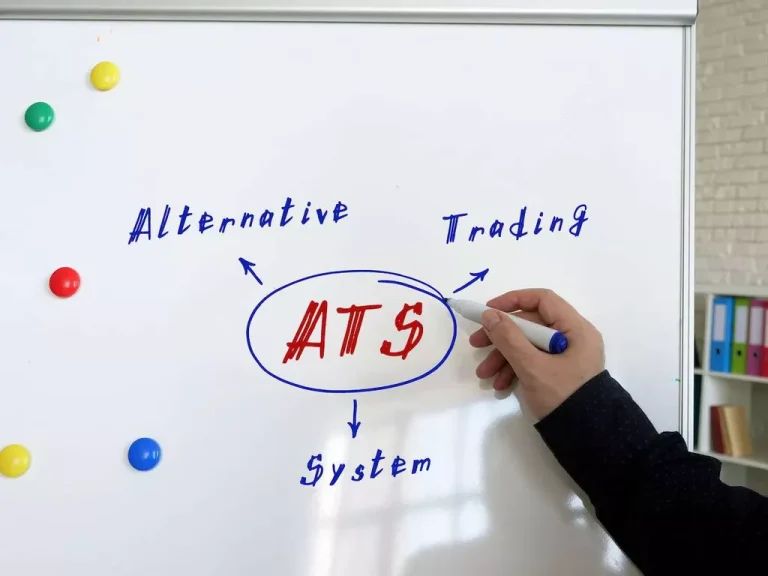Content
Market makers are experts in the art of efficient trade execution. Their proficiency becomes particularly evident when handling large and complex orders. Institutional investors and traders, whose Digital wallet portfolios involve significant sums, rely on market makers to fragment these substantial orders into smaller, more manageable trades. This process ensures that large positions can be discreetly and efficiently executed in the market without causing disruptive price movements that might otherwise erode the quality of execution. The difference between the ask and bid price is only $0.05, but the average daily trading volume for XYZ might be more than 6 million shares. If a single market maker were to cover all of those trades and make $0.05 off each one, they’d earn more than $300,000 every day.
What’s the Role of a Market Maker?
When institutional investors or traders want to buy or sell a significant quantity of assets, market makers can break down these large orders into smaller, manageable trades. This process allows for the efficient execution of substantial positions without causing significant price disruptions. They must manage the inventory of assets they hold, which can be subject to market price fluctuations. To mitigate this risk, market makers employ sophisticated trading strategies, algorithms, and risk management techniques to ensure their operations remain profitable. Some types of brokers in forex types of market makers are known as “specialists.” A specialist is a type of market maker who operates on certain exchanges, including the New York Stock Exchange. Although their functions are similar, specialists focus more on facilitating trades among brokers directly on the floor of an exchange.
What do market makers do in SME IPO?

The upside here is that there is likely to be room for improvement as it continues to ramp up EV production (cost savings from economies of scale, for example). Let’s take an example of one of the most popular SME IPOs in 2024, HOAC Foods. The company has offered 11,55,000 equity shares to the public and allotted 93,000 shares, i.e. 8.05%, to Giriraj Stock https://www.xcritical.com/ Broking as the market maker of the issue. The issue less the market maker reservation portion or the net issue amounted to 10,62,000 shares available for subscription by the public. There are several education requirements to become a market maker. 87% of market makers hold a bachelor’s degree and 8% hold a master’s degree.
What are the Roles of a Market Maker?
The reduced commission can range from approximately $5 to $15 per trade. The low fees are based on trading volume, and since there’s no investment advice, employees of online brokers are usually compensated by salary instead of commission. Many discount brokers offer online trading platforms, which are ideal for self-directed traders and investors. The spreads between the prices a retail trader sees in bid-ask quotes and the market price go to the market makers. MMs move fast and can buy and sell in bulk ahead of everyone else. Market making is a facility, in which, market makers have to provide an eligible 2-way bid and ask quotes for the SME shares listed and traded on the SME exchange.

Who are Market Makers? Understanding Their Role
There are a wide range of market makers from big banks and institutions down to specialized shops and individuals. Big investment banks such as JPMorgan are involved, but there is plenty of room for wholesalers and other players as well. Making a market signals a willingness to buy and sell the securities of a certain set of companies to broker-dealer firms that are members of an exchange. Market makers must stick to these parameters at all times, no matter what their market outlook. When markets become erratic or volatile, market makers must remain disciplined in order to continue facilitating smooth transactions.
- Ford is probably not a great option for conservative investors right now, and even more aggressive types might want to tread with caution, given all the moving parts in play today.
- The third price discovery mechanism is the one that operates using external inputs from oracles to determine price.
- Instead, they sell their inventory to complete multiple orders simultaneously.
- A market maker must commit to continuously quoting prices at which it will buy (or bid for) and sell (or ask for) securities.
- In some cases, exchanges may have designated market makers (or specialists), each of whom is responsible for making a market in specific securities.
The New York Stock Exchange (NYSE) employs a “specialist” system. That means they use a lone market maker with a monopoly over the order flow in a particular security. You’ll get a close look at who they are, how they make a living, and how they impact the market. AMMs like the constant product market marker (CPMM) of Uniswap V2 or Balancer operate using this system. So not only does Ford have to navigate a difficult business transition, it also has to deal with the inherent volatility of the auto business as it does so.
A specialist is a type of market maker who works on the floor of the NYSE and specializes in trading specific stocks. The most common example of a market maker is a brokerage firm that provides purchase and sale-related solutions for real estate investors. It plays a huge part in maintaining liquidity in the real estate market. If there is more demand for a stock than there is supply, the market maker will increase the price. If there is more supply than there is demand, the market maker will decrease the price.
This way, traders get to deposit crypto assets into relevant pools to offer liquidity and reduce slippage. In return, liquidity providers are paid a part of the trading fee. Order books and AMMs are both trading models used in the financial markets.
Market makers are instrumental in fostering capital market growth and innovation by supporting companies in their transition to the public domain. Their involvement instills investor confidence, ensuring a smoother and more successful transition for firms seeking to raise capital through the equity market. This, in turn, promotes economic growth, job creation, and investment opportunities for the broader population. Market makers help maintain order and prevent disorderly price fluctuations. When there is an imbalance between buy and sell orders, market makers step in to absorb excess supply or demand.
Market makers are obligated to sell and buy at the price and size they have quoted. DMMs are subject to stringent oversight by the exchange and must adhere to exchange rules and regulations. This oversight is in place to maintain market integrity and ensure that DMMs fulfill their obligations transparently. DMMs have the authority to adjust their quoting and trading activity to manage excessive volatility in the securities they oversee. Their actions are aimed at stabilizing the market and preventing abrupt price movements. StocksToTrade in no way warrants the solvency, financial condition, or investment advisability of any of the securities mentioned in communications or websites.
Market makers establish bid and ask prices for assets, effectively determining the bid-ask spread. The spread represents the profit margin for market makers and provides a clear reference for traders to assess the cost of entering or exiting a trade. Competitive market makers strive to offer narrower spreads, benefiting market participants with tighter trading costs. Today, there’s hundreds—if not thousands—of market makers, both human and digital, providing services to various stock exchanges.
This indispensable entity is none other than the market maker. Market makers are the unsung heroes of financial markets, silently but significantly influencing the dynamics of trading, asset pricing, and overall market stability. In today’s highly competitive and efficient markets, the bid-ask spread is often much less than one percent of the price of a security. To generate revenue, a market maker must accurately price securities almost instantaneously and execute trades at significant scale.
Market makers use sophisticated trading algorithms and technology to execute orders quickly. When a buy order matches a sell order, they facilitate the trade, taking the other side of the transaction. They may also have access to Level 2 or order book data, enabling them to see the supply and demand for a security in real time. But it also gives market makers much more power than the average retail trader in a transaction. An MM adds to the volume in the market by placing large orders for specific stocks or bonds.
Market makers can earn profits both from collecting the spread between the bid and ask prices of a security and also from holding inventory of shares throughout the trading day. One of the paramount functions of market makers is their ability to maintain stability in asset prices. In turbulent times or when there’s a sudden surge in demand or supply, market makers step in to act as stabilizers. By absorbing excess supply or demand, they prevent abrupt and extreme price swings that could otherwise unsettle investors and undermine market integrity. This stability fosters investor confidence, ensuring that markets remain predictable and conducive to long-term investment strategies rather than driven by irrational exuberance or panic selling. Market makers are individuals or firms representing buyers and sellers in a financial market.
